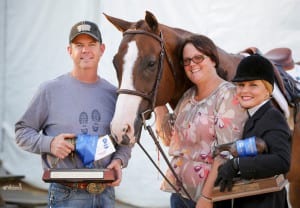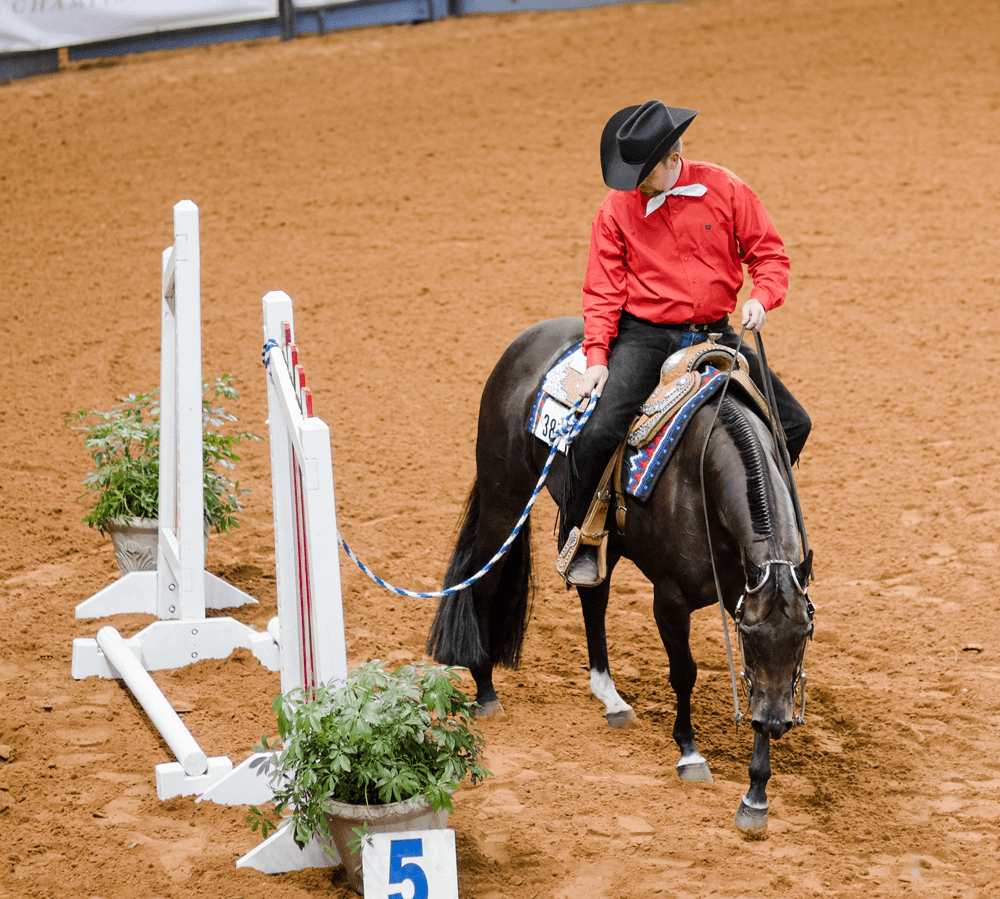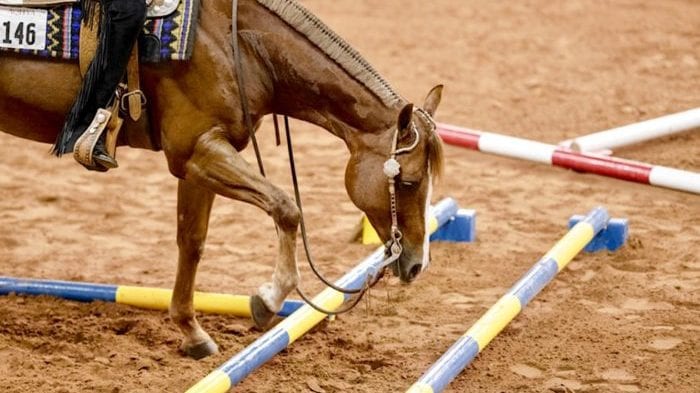Quality over quantity. A piece of advice that applies to almost anything, and especially horse shows. If you enter too many classes, energy will run low, and there won’t be enough time to practice for them all.
Picking and choosing classes, compared to showing in every event possible, is key to trainer Terry Cross’ success. “Instead of being mediocre at everything,” he said, “we try to specialize or focus on a few classes.”
With Congress just around the corner, AQHA Judges and Trainers Terry Cross of Dry River Ranch and John Briggs from Briggs Show Horses, discuss ways to maximize your victories in the show ring.
 Think about how much you can handle
Think about how much you can handle
When you start to pick classes, think about your stress level at shows. Are you easily frustrated, or can you go with the flow? “Some clients can do many classes with no stress at all,” Briggs said, “where others do get overwhelmed and need to back off of doing so many events.” How much you can balance at shows is an essential factor in choosing how many classes to do. Horses feed off their riders’ energy, and it helps to be as stress-free as possible, especially at shows.
Focus on what you like
Why show horses if it isn’t fun? By picking classes that you enjoy, shows will be more fun and be way less stressful. “We try to narrow down the events that clients would like to compete in,” Briggs said, “and then talk about the other events as ones we should practice, but maybe only do if we’re competing for the all-around.”
It is vital to keep an open mind when it comes to classes, but choosing ones that you enjoy will usually give you a good result. “If your client doesn’t like to show in certain events,” Briggs said, “they probably won’t succeed in that particular event.” So, choose classes that you and your horse like and excel in, and then go from there.
Some classes go hand in hand
 Many classes have an impact on one another, and it’s a good idea to focus on classes that will improve your performance in others. According to Cross, pleasure classes are always a good place to start. “Use the building block classes, like pleasure or hunter under saddle, to learn how the classes are connected,” he said.
Many classes have an impact on one another, and it’s a good idea to focus on classes that will improve your performance in others. According to Cross, pleasure classes are always a good place to start. “Use the building block classes, like pleasure or hunter under saddle, to learn how the classes are connected,” he said.
For example, working on hunter under saddle and equitation will result in better rides in both. The same goes for the western side of showing. “Trail scores will improve immensely with work on western pleasure or horsemanship,” Cross said. After you choose enjoyable classes, focus on the classes that connect to them to improve your scores.
Take it slow
Don’t rush, adding more classes to your plate. Things take time, and you have to be willing to put in the time and hard work. “Be patient,” Briggs said. “Take your time by adding new events. My advice is to learn one event at a time rather than start trying to do multiple events all at once.”
Become a master at a few classes first, then add another. Make sure you and your horse feel confident in the class. “Keep it simple,” Cross said. “Don’t throw things at horses or riders that they’re not comfortable with. Build up slowly to the all-around.”
Listen to your horse
When it comes down to it, you wouldn’t have the opportunity to show if it wasn’t for your horse. Think about what your horse is built for, what they enjoy, and what they exce l at when it comes to narrowing down what classes you’ll enter.
l at when it comes to narrowing down what classes you’ll enter.
“Trying to force a horse to do a class that they’re not fit for will just become discouraging,” Briggs said. “(When choosing what classes to show in), we sit down with our client and discuss what we think the horse’s strengths are and which events the horse would show well in.”
Also, consider your horse’s stamina, or even when classes are scheduled. “If we keep classes to a minimum,” Cross said, “the horse’s energy is dispersed, and the horse is more focused.” Your horse will have less energy for classes at the end of a show bill, so keep that in mind too. Taking the time to follow this advice will make for a better ride when you get into the show pen.
Although everyone would like to believe that horse shows are all fun and games, the reality is that, at times, they can get stressful and tiring. Keep stress low and energy high by being smart about which classes you enter. By considering these pointers, you, and your horse will have a more enjoyable and stress-free experience at shows.
Author Bio: Olivia Bradish has been an equestrian for 13 years. She attends the University of Michigan, studying English, as she has a passion for writing and journalism. Olivia shows the all-around events with her horse, CSR Roan Bar Penny, who is known around the barn as London.








